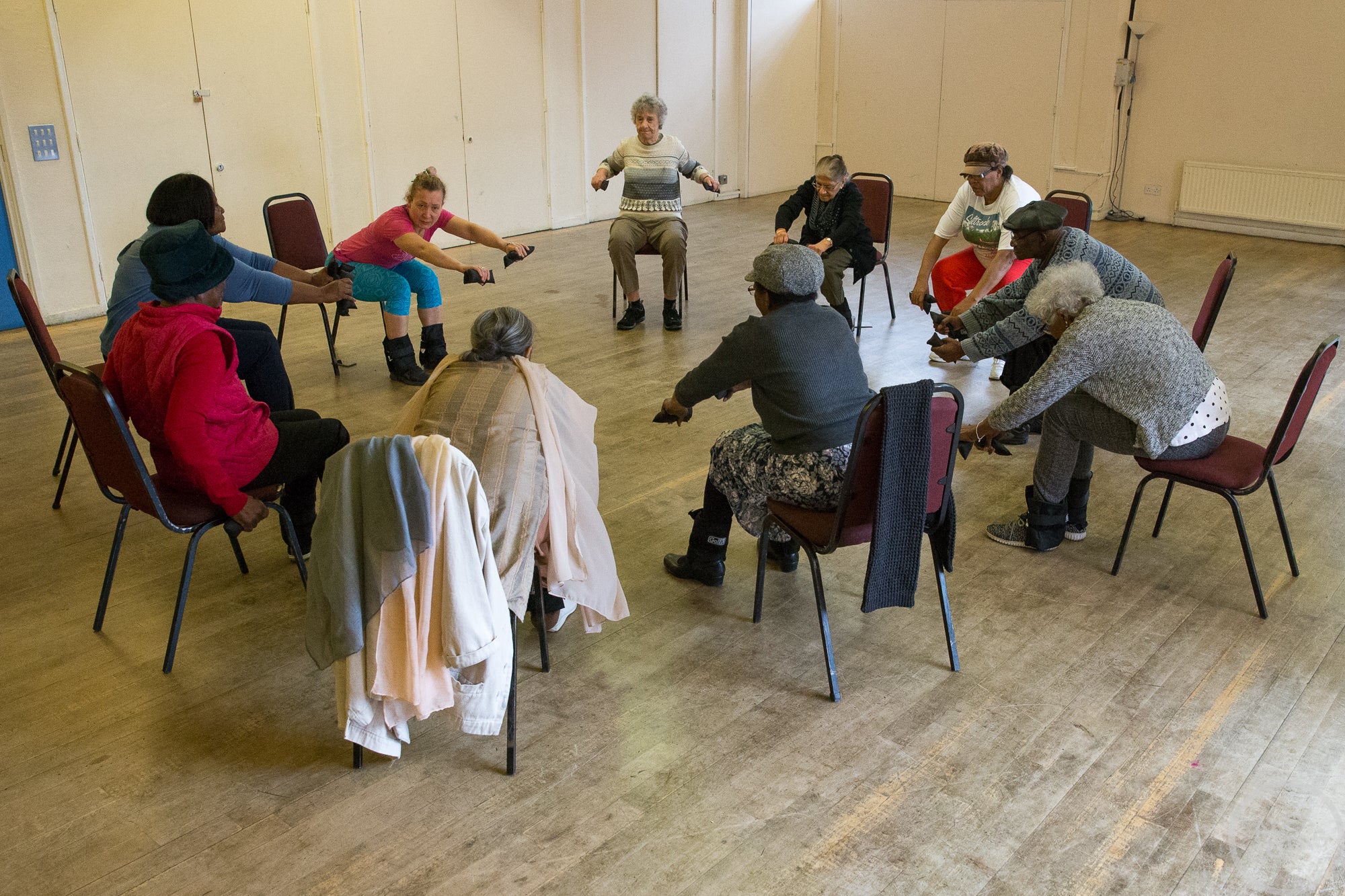Group exercise sessions can stop people losing strength as they age – study
As people get older and start to lose some mobility, this can lead to a reduced quality of life.

Your support helps us to tell the story
From reproductive rights to climate change to Big Tech, The Independent is on the ground when the story is developing. Whether it's investigating the financials of Elon Musk's pro-Trump PAC or producing our latest documentary, 'The A Word', which shines a light on the American women fighting for reproductive rights, we know how important it is to parse out the facts from the messaging.
At such a critical moment in US history, we need reporters on the ground. Your donation allows us to keep sending journalists to speak to both sides of the story.
The Independent is trusted by Americans across the entire political spectrum. And unlike many other quality news outlets, we choose not to lock Americans out of our reporting and analysis with paywalls. We believe quality journalism should be available to everyone, paid for by those who can afford it.
Your support makes all the difference.Group exercise can stop people from losing strength as they get older and make it easier for them to tackle everyday activities like walking and climbing stairs, research suggests.
According to the study, just one tailored group exercise session a week can help to prevent decline in mobility in those aged 65 and older.
As people get older and start to lose some mobility, this can lead to a reduced quality of life, a loss of independence, and rack up substantial health and social care costs.
It can even reduce overall life expectancy.
The programme improved my wellbeing as my walking ability and stair climbing are improving
Experts suggest that pressure on healthcare systems is set to grow with an ageing population, and currently three in 10 pensioners are classified as disabled due to mobility limitations.
The economic savings to the NHS over the two-year study were higher than the cost of the programme called Retirement in Action (React).
Researchers say it should now be rolled out nationwide.
The programme is targeted at older adults who are beginning to experience difficulties with everyday activities like climbing stairs, walking to the shop, or getting up from a chair.
It aims to prevent further decline in mobility through exercises that target strength in the legs, balance, and stamina.
Bath-based React participant, Fayek Osman, 74, said: “The programme improved my wellbeing as my walking ability and stair climbing are improving.
“React has been of great benefit to me and encouraged me to continue with an advanced level of activities. It also strengthens my belief that some exercise is better than nothing at all.”
We found clear evidence that quality of life was improved in the React group
Professor Afroditi Stathi, React chief investigator from the University of Birmingham, said: “Through React we have shown that this steady decline is avoidable.
“It can be prevented, or in many cases be reversed through an exercise programme that is individually tailored and progressive.
“At least one React exercise session per week seems sufficient to provide clinically meaningful benefits on lower limb physical function and it is highly cost-effective.
“This is a strong public health message to give to older adults, both in the UK and around the world.”
Based on results from a large trial, the international research team from the universities of Bath, Birmingham, Exeter, and the University of the West of England (UWE) and the University of Maryland School of Medicine and Wake Forest in the US say React can help older people avoid a downward spiral of declining mobility.
The trial involved 777 people aged 65 and over who were split into either an intervention or a control group.
Those in the intervention group attended React twice a week for three months and then once a week for a further nine months.
Those in the control group attended three separate healthy ageing classes over the course of the year.
The exercise sessions were each followed by 20 minutes of refreshments and socialising to promote session attendance.
According to the results, published in two papers in the Lancet Public Health, at 24 months those who attended sessions had significantly greater mobility than those who did not.
This suggests both a short and long-term positive effect.
React participants found it easier walking, climbing stairs, and had greater independence performing daily activities, according to the researchers.
At least one strength, balance, and mobility exercise session per week was enough to provide meaningful benefits on the function of lower limbs, the study suggests.
Per person, the cost of delivering the programme was £622, but the health care savings were £725 over two years and it is thought the longer term savings could be far higher.
Dr Tristan Snowsill, of the University of Exeter, who examined the economic data from the study with Professor Antonieta Medina-Lara, said: “We found clear evidence that quality of life was improved in the React group.
“This alone would most likely have been enough to justify the cost of the programme using the standard rule for cost-effectiveness.
“To also find that React participants used fewer health and care services makes the React programme one of the clearest cases of value for money I have come across.”
The team now hope the programme can be rolled out nationwide via community activity providers based in local areas.
Dr Max Western, of the University of Bath’s Department for Health, said: “Given these significant results, we are calling on healthcare professionals and policymakers to draw on our findings and implement similar React sessions in other parts of the country.”
The study was funded by the National Institute for Health Research (NIHR).